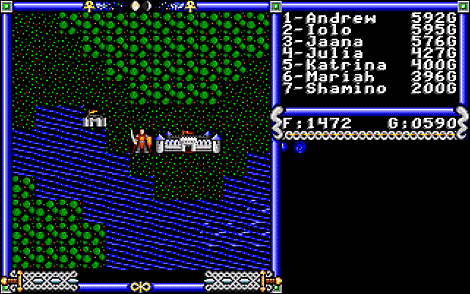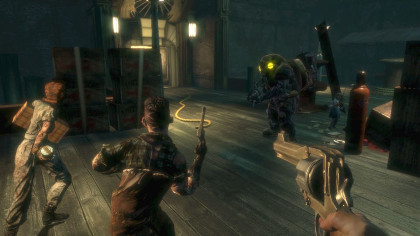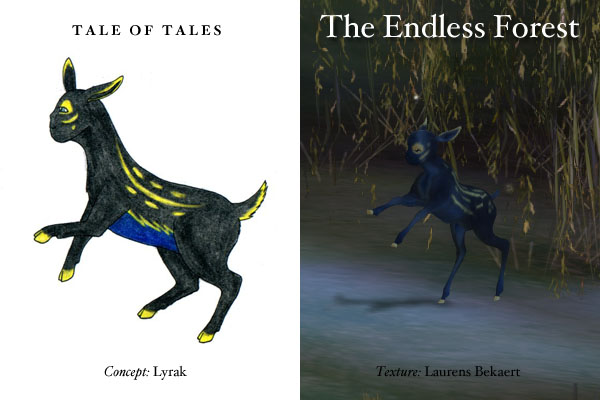It is possible to imagine the history of computer games as follows.

Many games have been well respected throughout the ages.
Games have been around for as long as humans have been. And while they have probably always had some educational function, humans mostly played games because they were fun. Games have a connotation of frivolity and even triviality. Nevertheless, the elegance of their abstract systems has been admired by many throughout the ages.

The first computer games were built by scientists.
Has anything changed since then?
When computers made their appearance, they were big, bulky and very serious machines who could do superhuman work. For some of the more ludic minds that built them, this seriousness must have been too hard to resist as a challenge. So they made a game for this machine. The irony of using such an expensive and serious device to play a trivial game must have been hilarious at the time.

Who really cared about the princess?
As it turned out very quickly however, and especially when computers became smaller and cheaper, the contradiction was only superficial. In fact, the logic by which the computer did its work and the structure of the rulesets of games were eerily similar. At some point, it may have seemed as if computers were invented for creating and playing games. Game rules and programming languages form a happy marriage.

The complex structure of games can generate a kind of immersion,
not unlike the one offered by fiction novels.
When computers became more sophisticated, computer games followed suit. Spreadsheets, databases, complex algorithms all became part of game design. To the further glory of the elegance of abstract systems.
What the game looked like didn’t matter much. As long as we could make out the black pawns from the white ones, we could interact with the machine. Playing a game was about this interaction, about becoming part of the structure of the game, of the abstraction. With exhilarating effect.

As the characters and situations presented in games become more
believable, our emotional involvement with them increases.
As computers developed better and better ways to present images and sounds with ever more detail, game designers obviously implemented them in their games. There is no harm in replacing the green pixel with a cartoon character and the beeps with actual music. As technology kept evolving and computers got faster, the graphics and sounds used for the representation of games became ever more sophisticated.

The combination of rules-driven interaction and realistic graphics,
may seem a tad ridiculous to the outsider.
The quality of computer game graphics and sound will soon be on par with painting, photography and film.
The people who were playing the old pixelly games of the past are now playing games with fancy graphics and elaborate musical scores. It doesn’t bother them. They can still get their kick out of the abstract systems. Those have not changed much.

Sometimes, the narrative elements of a game start leading a life of their own.
But the “eye candy” also attracted another audience. People who couldn’t care less about green pixels and computer bleeps in the past now swarm towards games like bees to honey. Do they enjoy interacting with the sophisticated rulesets of games? Probably. But I doubt if they deeply understand the mathematical elegance of becoming one with the abstract system. Instead, they enjoy how a character talks, they enjoy walking through a beautiful landscape. They enjoy the stories and the music. For them, the choice is not between a board game and a computer game. The choice is between a movie and a computer game, or a book and a computer game.

Game designers should probably not write stories.
And this is where things fall apart. And where the conflict between gamers and the rest of the world comes from. The stories and characters and themes that attract those swarms of bees are largely still the product of the same kinds of minds that build the abstract rulesets and mathematical constructions. The problem is that these people, unlike most of the avatars they create, are not superhuman. While their algorithms may be of an unparalleled refined elegance, their stories and their pictures and theirs sounds are lacking. Not in terms of quality (they either hire talent or build better machines for that) but in terms of content.

Beauty in the eye of the beholder.
When you ignore the sophistication of the rulesets, most games are about nothing at best, and about really attrocious things at worst. Not because all engineers are nazis or sexists. No, because they are scientists. Scientists are objective. They make no moral judgements. They just want to make things work. Disregarding the consequences. Their sense of aesthetics is extremely formal. They don’t judge. They don’t express opinions. And that makes them bad artists. They have no story to tell. And if they had, they wouldn’t know how. Their creativity lies elsewhere.

What will happen when artists start creating games?
When more and more people start playing games for very different reasons than the original gamers, it is only logical that the teams who create those games start changing as well. I’m very curious to see what kinds of games will come out of that. Games that are not designed by engineers but by artists, games where the graphics, sound and meaning are the basis of the design and not just the pretty packaging of an abstract system.

People love playing games.
This is not just economically sane or simply logical. It is an ethical necessity. When most people play games for their content and not for their mechanics, it is of vital importance that this content is carefully considered. We cannot simply assume that the player will understand that the muscular hero and the armored vehicles and the neverending bloodshed is just a metaphor for an intricately elegant system underneath. We need to realize that the audience interprets these things as stories, and not just as dressing.

When numbers mix with people, terrible things can happen.
The games that are being produced today have an intense expressive power. But nobody seems to be controlling what these games are saying. The stories and characters flow out of the game design naturally. But that game design is riddled with morally problematic concepts. Mathematics is not ethical. It doesn’t need to be. But we know very well what happens when humans start thinking in abstract systems and lose sight of the practical realities of life…

Games are fine. There is no need to dress them up.
When game logic is presented as a story, we get racism, sexism, violence, determinism, power struggle, etc. Horrible horrible stories. Very limited stories. With game technology’s increasing sophistication in representation comes a moral obligation to design games around stories, and not the other way around. Because people experience them as stories, and not as abstract systems. This heavy responsibility rests on the shoulders of game developers.



















